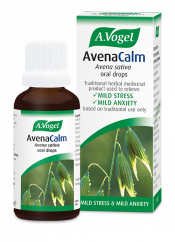An introduction to anxiety symptoms
Anxiety symptoms often arise as a result of being under stress – though more specifically, by an inability to cope with or process stress. Symptoms of anxiety therefore often overlap considerably with symptoms of stress.
Anxiety is sometimes described as being nervous. It is normal to be a bit nervous or mildly anxious in certain circumstances – for example, when going for a job interview. When this level of anxiety becomes irrational, extreme, or difficult to control, however, this indicates an anxiety disorder.
Physical symptoms of anxiety
Physical symptoms of anxiety result from the ‘fight or flight’ reaction of the body to danger. Adrenaline and other chemicals are released into the bloodstream and these account for the acute physical symptoms of anxiety experienced, such as:
- Heart pounding
- Increased heart rate (racing heart)
- Shortness of breath or difficulty breathing
- Fast, shallow breathing (hyperventilation)
- Muscle tension (esp. in neck and shoulders)
- Feeling nauseated or being sick
- Flushing in the face
- Dry mouth
- Excessive sweating
- A ‘knot’ in the stomach
- Diarrhoea
- Feeling tingly
- Feelings of tiredness
If stress is prolonged, these acute symptoms decrease in intensity, but lie in the background. This is the reason why people with the tendency to feeling anxious can suffer from conditions such as:
- High blood pressure
- Neck and shoulder pain
- Headaches
- Irritable bowel syndrome
Mental and emotional symptoms of anxiety
When stress is long-standing, or if the mind and body are not coping with stress, a series of emotional or psychological anxiety symptoms can arise. These include:
- Feeling restless, jittery or ‘on-edge’
- Feeling irritable, impatient or short-tempered
- Being negative, worried, low in mood or depressed
- Experiencing difficulty getting to sleep or not sleeping well through the night
- Mood swings
- Having a sense of ‘dread’ that something is about to go wrong
- Loss of self-confidence or self-esteem
- Loss of concentration, being easily distracted or having a poor memory
- Feeling you can’t cope with normal everyday issues such as running late for a hairdressing appointment
- Having irrational thoughts such as the desire to give up work and ‘never mind the consequences’
- Poor judgement
- Relying more on alcohol, cigarettes (or even illegal substances) to help you through the day
Health problems associated with stress and anxiety
If anxiety symptoms persist and stress is experienced over time, a number of health problems may result. These include:
- Depression - It is normal to feel a bit low or moody from time to time, especially if you are under a bit of pressure. However, anxiety can, over time, lead to depression and a feeling of despair
- Panic attacks -These are also known as anxiety attacks. Typical symptoms include hyperventilation, difficulty breathing and a choking sensation in the throat
- Circulatory problems - People who experience long-standing anxiety tend to have a higher blood pressure. This in turn can lead to an increased risk of strokes and heart attacks
- Digestive problems - Feeling a ‘knot’ in the stomach can be a symptom of anxiety. However, when prolonged, specific digestive conditions such as indigestion, bloating, stomach ulcers and irritable bowel syndrome can develop
- Increased inflammation - The chemicals giving rise to anxiety symptoms can disturb the normal healing processes in the body. This explains why stress and anxiety can make symptoms of certain underlying conditions (such as joint pain or asthma) worse.
If any of the health problems mentioned in this section become serious or if you experience unexpected or severe symptoms, you must seek medical advice.








